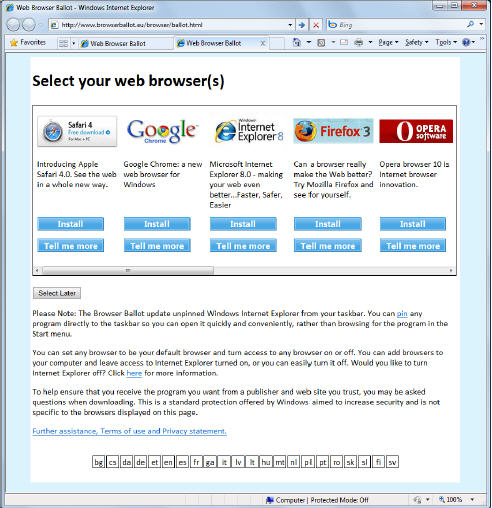EU ends Microsoft antitrust probe; Accepts browser choice

Updated: The European Commission said Wednesday that it has settled with Microsoft over its remaining antitrust issues. In a nutshell, the EU accepted Microsoft's plan to offer browser choice on PCs without bundling Windows and Internet Explorer together.
Microsoft's commitment to offer European PC users their choice of browsers and computer vendors to turn Internet Explorer off completely. Microsoft is also disclosing its interoperability plans.
EU's competition commissioner Neelie Kroes said in a statement:
Millions of European consumers will benefit from this decision by having a free choice about which web browser they use. Such choice will not only serve to improve people's experience of the internet now but also act as an incentive for web browser companies to innovate and offer people better browsers in the future.
In a statement, Microsoft said it was pleased with the deal. Under the deal, Microsoft will allow for a choice screen for five years in Europe. This screen will enable consumers to pick the browsers---Firefox, Chrome, Safari and Opera---they want to install.

In October, the EU agreed to market test Microsoft's browser proposal, which was made in July.
The move effectively ends the long-running Microsoft-EU antitrust spat. The EU, however, noted it will review Microsoft's settlement in two years. Meanwhile, the software giant will report back every six months to the EU.
As for the interoperability information, Microsoft will publish improved disclosure for third party developers.
Also: Report: Final Microsoft browser ballot may include Opera-suggested modifications